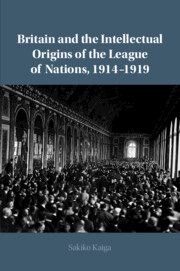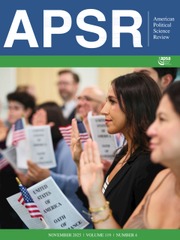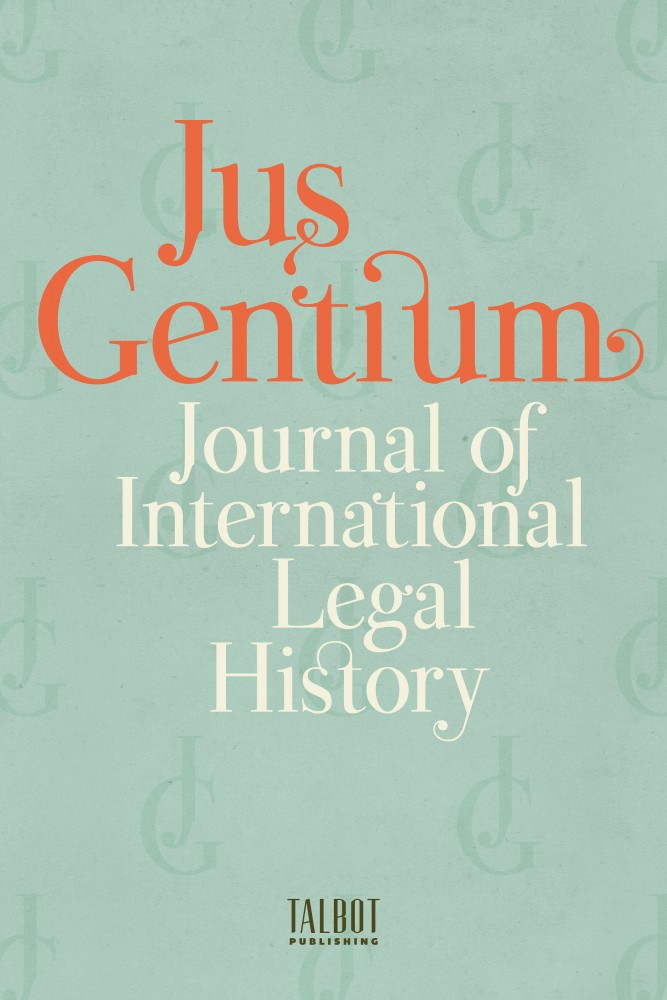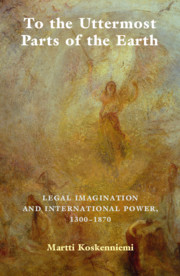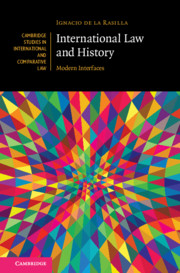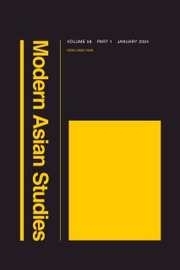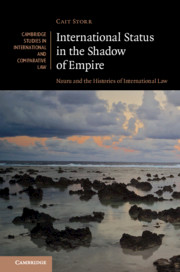The history of war is also a history of its justification. The contributions to this book argue that the justification of war rarely happens as empty propaganda. While it is directed at mobilizing support and reducing resistance, it is not purely instrumental. Rather, the justification of force is part of an incessant struggle over what is to count as justifiable behaviour in a given historical constellation of power, interests, and norms. This way, the justification of specific wars interacts with international order as a normative frame of reference for dealing with conflict. The justification of war shapes this order, and is being shaped by it. As the justification of specific wars entails a critique of war in general, the use of force in international relations has always been accompanied by political and scholarly discourses on its appropriateness. In much of the pertinent literature the dominating focus is on theoretical or conceptual debates as a mirror of how international normative orders evolve. In contrast, the focus of the present volume is on theory and political practice as sources for the re- and de-construction of the way in which the justification of war and international order interact. With contributions from international law, history, and international relations, and from Western and non-Western perspectives, this book offers a unique collection of papers exploring the continuities and changes in war discourses as they respond to and shape normative orders from early modern times to the present.
Table of contents:
Introduction
1:The Justification of War and International Order. From Past to Present, Hendrik Simon and Lothar Brock
Part I
2:Politics, Ethics and History in Just War, Anthony Lang, Jr.
3:Imperialism, International Law and War: Enduring Legacies and Curious Entanglements, Siddharth Mallavarapu
Part II
4:Princes' Justifications of War in Early Modern Europe: the Constitution of an International Community by Communication, Anuschka Tischer
5:The Legal Mechanics of Spanish Conquest: War and Peace in Early Colonial Peru, Arnulf Becker Lorca
6:Capitalism, British Grand Strategy and the Peace Treaty of Utrecht: Towards A Historical Sociology of War- and Peacemaking in the Construction of International Order, Benno Teschke
7:Kant's Rejection of Just War: International Order between Democratic Constitutionalism and Revolutionary Violence, Oliver Eberl
Part III
8:Anarchy over Law? Towards a Genealogy of Modern War Justifications (1789-1918), Hendrik Simon
9:Protection Emergencies: Justifying Measures Short of War in the British Empire, Lauren Benton
10:The Great War and International Law: German Justifications of Prevention and Pre-emptive Self-Defence, Isabel V. Hull
11:Salvation through War? The Ottoman Search for Sovereignty in 1914, Aimee Genell and Mustafa Aksakal
12:Juridification, Politicisation, and Circumvention of Law: (De-)Legitimising Chemical Warfare before and after Ypres, 1899-1925, Milos Vec
Part IV
13:Peace through Law: Lessons from 1914, B.S. Chimni
14:Re-Ordering the World from the Skies? The Emergence and Justification of Aerial Warfare, Thomas Hippler
15:The Justi?catory Potential of International Law. National Socialists' Dreams of African Colonies, Felix Lange
Part V
16:'What We Are Fighting For': Democracies' Justifications of Using Armed Force since the End of the Cold War, Anna Geis and Wolfgang Wagner
17:The War on Terror and the Law of War: Shaping International Order in the Context of Irregular Violence, Michael Stohl
18:'We Are Going to War.' Narratives of Self-Defence & Responsibility in Afghanistan War Documentaries, Axel Heck and Gabi Schlag
19:Justifying Interventions - The Case of ECOWAS in Liberia, Nina Wilén
20:Humanitarian Intervention: Justifying War for a New International Order, Beate Jahn
Part VI
21:The Islamic Law of War and Peace and the International Legal Order: Convergence or Dissonance?, Sohail H. Hashmi
22:In the Name of State Sovereignty? The Justification of War in Russian History and the Present, Paul Robinson and Mikhail Antonov
23:China's Approach to the Use of Force: A Short Review of China's Changing Attitudes towards the Justification of Humanitarian Intervention, Manjiao Chi
Paty VII
24:Justified: Just War and the Ethics of Violence and World Order, Chris Brown
25:How Many Deaths Can Art 2 (4) UN Charter Die?, Thilo Marauhn
26:Justification and Critique: Humanitarianism and Imperialism over Time, B.S. Chimni
27:The Justification and Critique of Coercion as World Order Politics, Christopher Daase and Nicole Deitelhoff
An Attempt at a Synthesis
28:Justifications of the Use of Force as Constitutive Elements of World Order - Points of Departure, Arrivals and Moving Destinations, Lothar Brock and Hendrik Simon
On the editors:
Edited by Lothar Brock, Senior Professor, Goethe-University Frankfurt, and Hendrik Simon, Research Associate, Peace Research Institute Frankfurt
Lothar Brock is Senior Professor of Political Science at Goethe University Frankfurt and at the Peace Research Institute Frankfurt. He is co-author of Fragile States: Violence and the Failure of Intervention (Polity, 2012) and co-editor of Democratic Wars: Looking at the Dark Side of Democratic Peace (Palgrave, 2006).
Hendrik Simon is Lecturer at Goethe University Frankfurt and Research Associate at the Peace Research Institute Frankfurt. He was Visiting Fellow at the Centre for Advanced International Theory/University of Sussex (2017), at the University of Vienna (2018, 2016), at the Max Planck Institute for European Legal History Frankfurt (2015-16) and at the Cluster of Excellence 'Normative Orders' (2011-12).
(more information with OUP)


